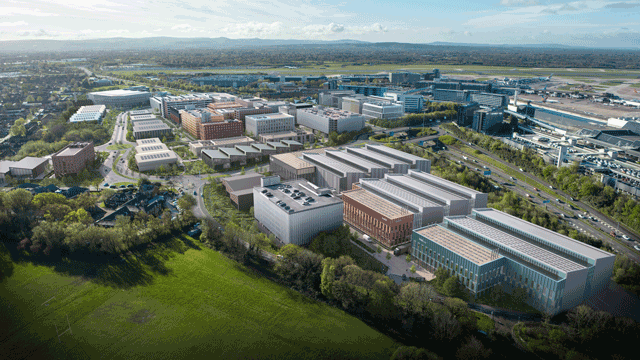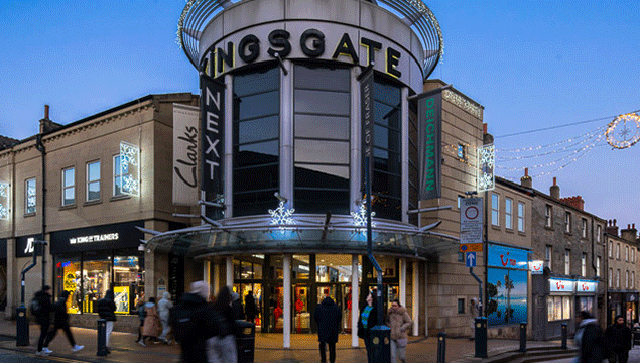The regional office market is starting to see an entrenched bias towards green and prime buildings, responding to ESG concerns and occupier demands, with a supply/demand imbalance ensuring continued rental growth at the prime end of the market.
The hunt for best-in-class office space has resulted in continued rental growth in 2021/22 across the Big Six regional cities, with further increases expected over the rest of 2022. We anticipate that prime headline rents will exceed £40 per sq ft in Bristol, Birmingham and Manchester by the end of the year.
While the shortage of best-in-class office stock demanded by occupiers creates a real opportunity for developers to create new workspace, there is also a growing proportion of cost-conscious occupiers and start-ups for whom securing the lowest possible rent is still a high priority. We therefore need to maintain a healthy pipeline of affordable space across the UK regions to help these businesses thrive.
However, it’s not just about providing spaces to help businesses get off the ground; cities also need to retain these companies as they grow. As they become more established and begin hiring more employees their workspace needs to evolve. High-quality and flexible workspace to suit both new and maturing businesses is therefore vital to retain growing companies within these cities.
Engines of growth
Since 2008, the number of start-ups has grown significantly in key cities (54%, 46% and 39% in Birmingham, Manchester and Leeds respectively), bringing vitality and talent, creating placemaking opportunities and more socially cohesive mixed communities. Time and time again, these clusters of emerging talent drive the creation of jobs and new businesses and attract investment capital. However, if there is no clear route to delivery of affordable workspace then many UK towns and cities could get left behind.
While the future of “levelling up” as a government policy will be decided by the UK’s new prime minister (still to be determined at the time of writing), the thesis behind it – that more investment is needed to support opportunities across the whole country – is sound, and delivering the right types of real estate at the right price point to help local growth is essential.
Local authorities have a role to play. They are uniquely placed to act where the market cannot or will not provide the right types of workspace at the desired price points. There are benefits from local authorities taking this approach – it is a way to encourage job creation that can tie into wider regeneration strategies while bringing in revenue and engaging with small businesses.
Funding support
Not directly linked to the levelling-up agenda, but demonstrating the type of innovative thinking and opportunities that can still be harnessed, there are examples where local authorities have used appropriate funding sources to deliver the required choice of buildings, usually at lower price points, to accommodate and grow fledgling businesses.
These include Glasgow, where the city council has accepted the award of £5.5m in Regeneration Capital Grant Fund support from the Scottish government for five community regeneration projects in the city. This project will see the restoration of 12,000 sq ft of underutilised space.
Typical of many towns across the country, despite its grand heritage Bolton has experienced decline and the centre is littered with large vacant buildings. But there are economic opportunities that the town is capturing: Bolton has been supported by £22.9m of Town Deal funding from the government’s Towns Fund, and one of the plans put forward for investment as a consequence is the £7.25m transformation of the Wellsprings building. This vacant office building in a prominent town centre location will be transformed to create an innovation hub and co-working space.
Most recently, a contract worth up to £42m has been awarded to Edinburgh-based company Codebase, to establish seven new “tech scaler” hubs across Scotland – one of the largest investments by the Scottish government into the country’s potential as an entrepreneurial nation. The investment will support tech founders in scaling up their businesses by accessing advice and mentorship from industry experts at the hubs. Partners include Google for Startups UK, Barclays Eagle Labs and Reforge, a leading San Francisco-based membership programme that teaches start-ups how to grow using Silicon Valley founders’ best practice.
Ultimately, regional cities need to create places where people love to be, nurturing the people who live and work in them. It is in these ways that these locations can build connected and varied communities, providing the right environment to allow the businesses of entrepreneurs to grow and contribute to their economic ecosystems, in turn increasing employment opportunities in the local area.
Clare Bailey is a director in Savills’ research team
See which agents are doing the most office deals around the country with our On-Demand Rankings >>











